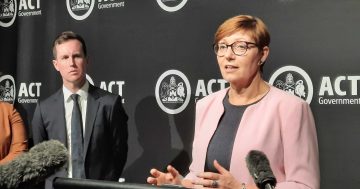 The NSW Ombudsman has launched a paper dealing with good administrative practices for supporting NSW public servants in the lead up to the State Election next month.
The NSW Ombudsman has launched a paper dealing with good administrative practices for supporting NSW public servants in the lead up to the State Election next month.
In his paper In Focus: Avoiding maladministration in the context of the NSW State election, the Ombudsman Paul Miller said that at all times – but especially in the lead up to an election – Government Sector employees must remain apolitical and impartial, comply with pre-election rules, and avoid any conduct that may constitute maladministration.
“As the March 2023 election approaches, it is timely to consider how the context of an election year can give rise to different or heightened risks of ‘maladministration’ by NSW Government Agencies and their staff,” Mr Miller said.
“In this edition of In Focus, we look at some of the ways in which the conduct of public servants in the period immediately before or after a general State election could constitute maladministration,” he said.
“The paper is not intended to be comprehensive but seeks only to highlight some pressing issues that all public servants need to be especially aware of at this time.”
Mr Miller said the paper included the importance of complying with caretaker conventions; fulfilling ordinary administrative functions and avoiding unnecessary delays; keeping and maintaining proper records; remaining apolitical and impartial; avoiding conflicts of interest; and avoiding inappropriate use of public funds.
He warned that if maladministration did occur, then a complaint or report may be made to the Ombudsman.
“The most obvious new requirement that applies before an election is observance of the caretaker conventions,” the Ombudsman said.
“Although traditionally focused on the conduct of Ministers, it is the public sector that may be in the spotlight when concerns arise about possible non-compliance with the caretaker conventions,” he said.
“A failure to comply with the caretaker conventions may constitute maladministration.
“As the Queensland Crime and Misconduct Commission has observed, a deliberate breach of the caretaker conventions could also amount to official misconduct resulting in disciplinary action.”
Mr Miller said Agencies must not engage in conduct that would result in the Government directly or indirectly contravening the conventions.
Providing an example, he said that if a Minister had delegated to a Departmental Secretary the power to enter into a major new contract, then just as the Minister would not sign such a contract themselves during the caretaker period, so the Secretary must not sign such a contract during that period.
The Ombudsman’s paper can be viewed online at this PS News link.











